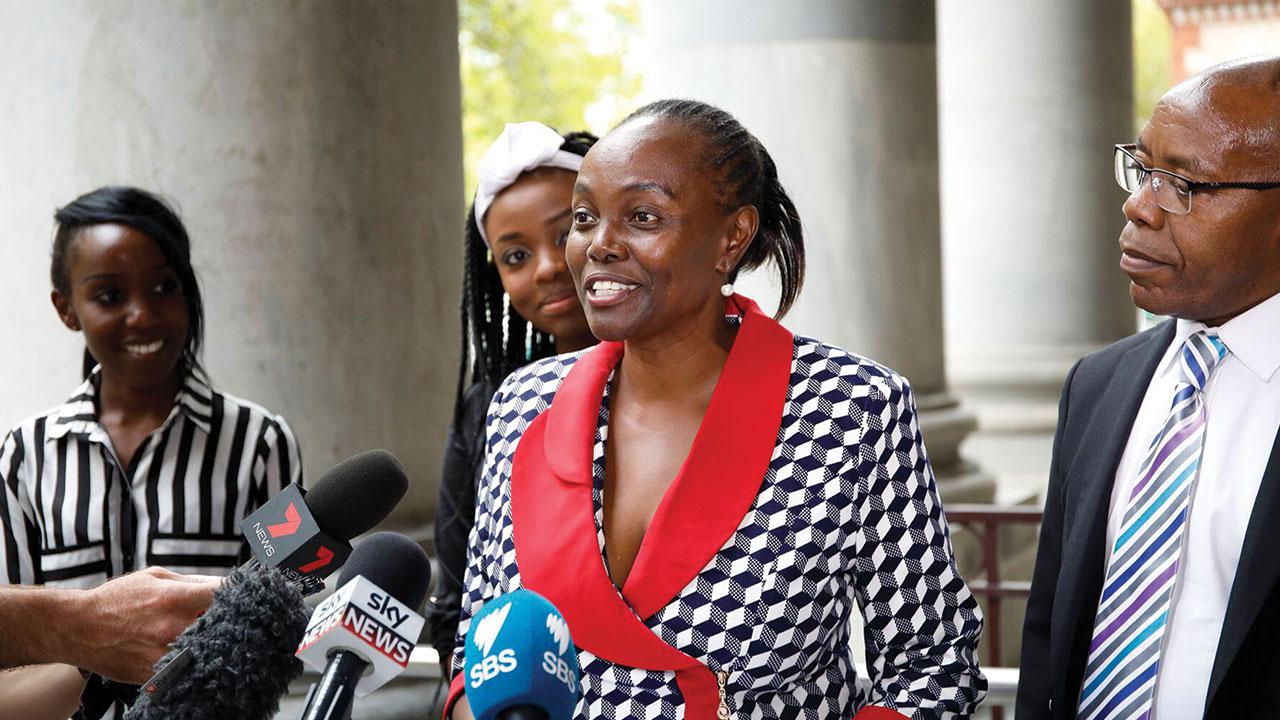
This week the Family First Party amalgamated with Cory Bernardi’s Australian Conservatives. However, the only federal Senator for Family First, Lucy Gichuhi, decided that she would become an independent instead of joining the Australian Conservatives.
Lucy Gichuhi has been elected to the Senate, but has yet to be sworn in. Very soon after the announcement that Family First had shut shop, people on Twitter were starting to ask whether the High Court would again be involved. Tweets included:
If Family1st no longer exits how will Lucy Gichuhi be sworn in to replace Bob Day as next Family1st senator? Back to the High Court? #auspol
And:
How can Lucy Gichuhi go independent when she hasn't even been sworn in as a senator for family first let alone a independent
Does the seat belong to a party or a person?
This can be confusing. Because most of us (something like 95%) tend to vote above the line in the Senate, many believe that they are voting for a party. Thus, we might think that the Senate seat should belong to the party.
However, this is not the case. Even if we do vote above the line, we are giving our one vote to an individual person, rather than a party. Our voting system gives us a transferrable vote, what we call ‘preferences’.
If you vote above the line, the candidate you are giving your vote to, is the first person listed under the line. Your second preference is the second person in that list under the line and so on until all of the people in that list have a preference from you. Then we move onto the party you have given your number 2 to, and the first candidates listed below the line in this list receives your next preference and then the candidate under them and so on.
If you vote below the line, it is much clearer who you are actually giving your preferences to. They are in the order that you make them.
Section 7 of the Constitution states that Senators must be directly chosen by the people:
The Senate shall be composed of senators for each State, directly chosen by the people of the State, voting, until the Parliament otherwise provides, as one electorate.
This means the party doesn’t choose, we the people choose the Senators.
Lucy Gichuhi didn’t gain the Senate seat because it belonged to Family First. It just so happened that in a recount of all the ballot papers (with Bob Day removed) she had enough votes to earn the seat.
The recount
On 5 April, Bob Day of Family First was found to have been ineligible of being chosen to sit in the Senate at the last election under section 44v of the Constitution. The High Court then directed the Australian Electoral Commission (AEC) to conduct a special count of the South Australian ballot papers from the 2 July 2016 election.
Bob Day was the number one on the Family First ticket and Lucy Gichuhi was the number two. It was well known throughout the Bob Day eligibility case that Mrs Gichuhi was likely to gain the seat in a recount. The AEC had released their election data shortly after the counting had been completed in 2016. Election analysts had then placed the data into their own systems and were able to show the public what a recount would look like.
However, the Labor Party made an argument in the High Court against a special recount. Labor’s Anne McEwen had come 13th in the election for the South Australian Senate and argued that she should gain the seat. It does sound reasonable that if you come 13th and the person who came 12th is disqualified, then you should get the seat. However, our preferential system can remove Bob Day from the ballot paper and then move all of his votes across to the candidates that the voters had chosen for their next preference.
The other Labor argument was about the Family First above the line vote. In order to get a place above the line, with your party name and logo, the party must have at least two candidates. With Bob Day not eligible of being chosen as a Senator, only Lucy Gichuhi was left on the ticket. It was argued that because of this, all Family First above the line votes should be disregarded.
The High Court was concerned as some people had only given a number one above the line for Family First and if these votes were disregarded it would be a distortion of the voter choice. The High Court decided that Family First above the line votes could remain in the count. It effectively meant that Lucy Gichuhi was the number one on the Family First ballot in the recount.
On Wednesday last week Lucy Gichuhi was announced elected as a South Australian Senator by the High Court. She will be sworn in when Parliament meets again on 9 May. Our first parliament opened on 9 May 1901. On that same day 116 years later, our first parliamentarian with an African background will be sworn in.
Could there be any other complications with Family First disappearing?
Possibly. Casual vacancies are outlined in Section 15 of the Constitution. If Lucy Gichuhi were to casually vacate her seat and the party that she belonged to when she was chosen as a Senator no longer existed, then the South Australian Parliament might choose the replacement that they prefer. In all likelihood it would probably end up back in the High Court, who would have to decide if Family First ceased to exist when they amalgamated with the Australian Conservatives.

